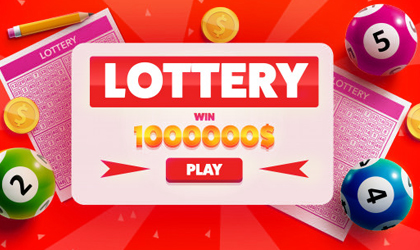Keno Most Common Triplets
We’re going to maintain that there are no patterns, but if you insist – some players believe that 1,2,23,34, and 72 are the drawn numbers most often. We don’t buy it, but if you’re looking for someone to give you winning keno numbers, these are as good as any. View a breakdown of the 15 most common consecutive pairs of numbers for a lottery, ordered by frequency, showing the most common at the top Most Common Triplets. Finding the most common Consecutive Triplets of numbers drawn in a lottery draw is one of the most basic but important tools you’ll ever use. Utilize this tool to build up all six of your Lotto numbers and with any luck, improve your chances of winning. WEDNESDAY LOTTO STATISTICS, Statistics including the most common lottery numbers, a lotto number frequency table, overdue numbers.
Looking for winning keno patterns is an important part of playing the game. And learning how to take advantage of those patterns can be a benefit to the player.
If you’re familiar with casino gambling, you know that casinos make their profits from having an edge (an advantage) on every game they have on the floor. However, there are rare instances when casinos have made mistakes. When that happens things can go very wrong for the casino. You’re about to read a fascinating story, as reported by Steve Bourie, about one of those instances that occurred many years ago at a casino in Canada.


Casino de Montreal first opened for business in October 1993 and one of the games it offered was keno. It was the typical keno game that uses the numbers from 1 to 80. Twenty numbers out of the 80 are selected randomly and players try to guess which numbers will be chosen. In this particular game, players guess anywhere from 1 to 20 numbers.
Interestingly, the casino offered the pick 20 on two types of keno games – mechanical and electronic. That’s a lot of keno patterns. In the mechanical version the numbers were printed on 80 standard ping pong-type balls and were chosen by a blower system that mixed the balls and then allowed the balls to escape to a chute one-at-a-time so the numbers could be called out. The electronic version used a computer chip called a random number generator (RNG) to determine its 20 numbers. These electronic machines had been used in numerous Las Vegas casinos for years and are known to be reliable.
Daniel Corriveau was a freelance computer consultant who enjoyed using his skills to look for patterns in winning lottery numbers. When the new casino opened in his home province of Quebec he decided to turn his attention to the casino’s keno game. Eventually, he thought he detected specific keno patterns in the electronic version of the game and he went to the casino on April 10, 1994 to test out his theory. By the end of the evening he had hit 19 out of 20 numbers three consecutive times, plus some other number combinations for a total win of $620,000.
Knowing that it was statistically impossible to accomplish such a feat, the casino personnel immediately shut down the electronic game and decided not to pay Courriveau until they conducted an inquiry into what had happened. After all, they wanted to make sure that there wasn’t some elaborate scheme underway to defraud them.
After conducting a full-scale police investigation, including a polygraph exam, the casino called a press conference 17 days later to announce that Courriveau had legitimately won his bets and presented him with a check for $620,000.
So how was that possible? Did Mr. Courriveau really discover a winning system for predicting keno numbers? In a way he did – for that particular machine. The key was to be found in the keno patterns.
It turns out that there was an unknown bug, a problem, with the electronic version of the keno game. Although a RNG can literally produce hundreds of millions of different number combinations it always has to have a starting point, or seed, to begin its calculations. It then uses that number to do the math to come up with a new number which then becomes the seed for the next calculation. It then uses that number to do the math for the next calculation and that result becomes the seed for the next calculation. This process is repeated continuously. The one thing to keep in mind, however, is that because the calculations are always the same the RNG needs a different seed each time or else it will come up with the same numbers. In other words, if the starting seed doesn’t change, the RNG will simply come up with the same results time after time.

As mentioned before, the electronic machines had a history of working perfectly in Las Vegas, but in Las Vegas the casinos are open 24 hours a day. The machines are on all the time. It was different in Montreal. The casino didn’t operate on a 24-hour schedule. The machine was shut off at some point every night for several hours. When the machine was turned on the next day it always started its calculations at the initial seed which was programmed into it. Since the seed never changed, the machine simply kept repeating the same keno patterns of numbers. Mr. Courriveau was lucky enough to spot the pattern but anyone probably could have done the same had they kept a history of the winning numbers. After the problem, the casino still offered keno, but only the mechanical version. The electronic keno game never reopened after Courriveau’s big win.
Keno Most Common Triplets Values

Keno Most Common Triplets Surnames
Discover how to take advantage of keno patterns using your own numbers for any spot (3 through 10): Keno Smart Charts Download